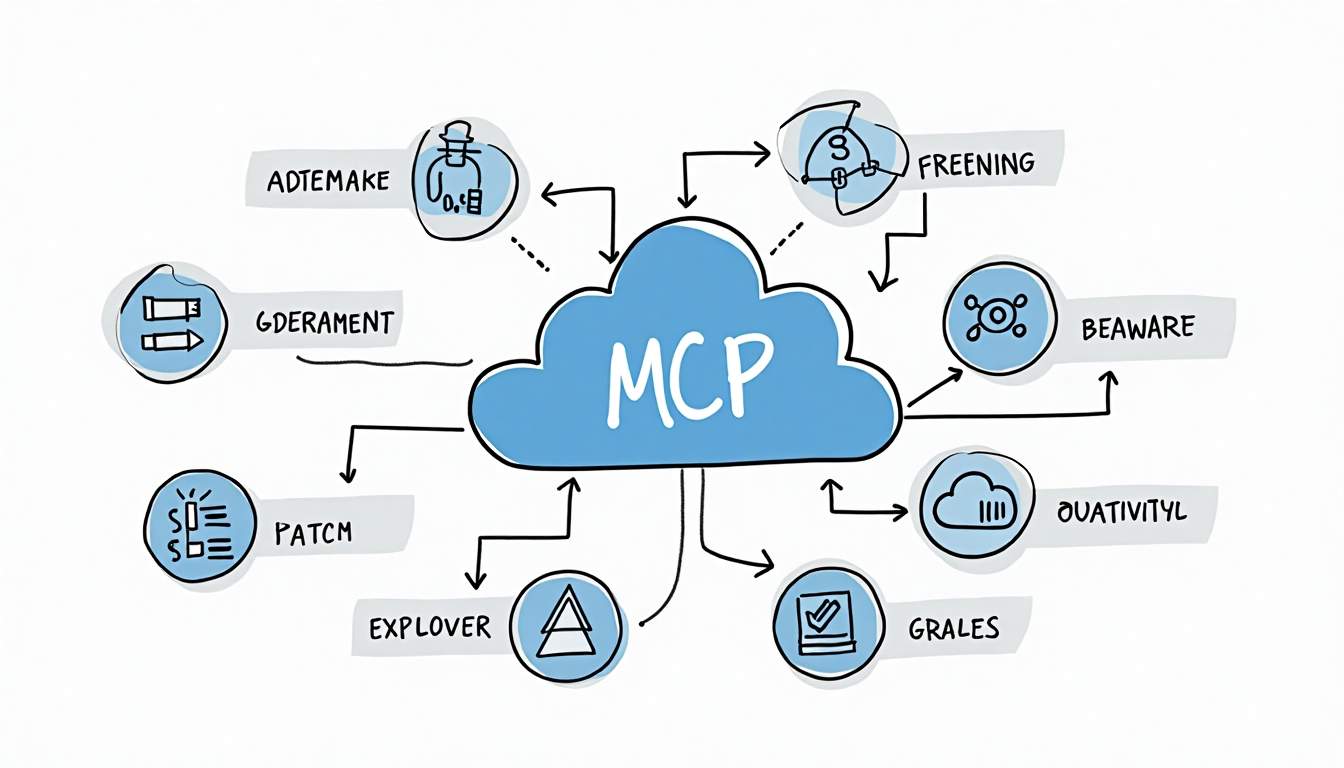Understanding Google MCP
David Liu

Understanding Google MCP
The Google Marketing Cloud Platform (MCP) is a powerful suite of tools designed to help businesses manage their marketing efforts more effectively. By integrating various marketing technologies, Google MCP allows organizations to streamline their operations, analyze data, and optimize their marketing strategies. This article will delve into the components, benefits, and best practices associated with Google MCP, providing a comprehensive understanding of its capabilities.
What is Google MCP?
Google MCP is a comprehensive marketing solution that combines various tools and services to assist businesses in executing their marketing campaigns. It encompasses a range of functionalities, including data management, analytics, advertising, and customer relationship management (CRM). The platform is designed to cater to businesses of all sizes, from small startups to large enterprises, enabling them to leverage data-driven insights for better decision-making.

At its core, Google MCP aims to unify marketing efforts across different channels, allowing marketers to create a cohesive strategy that resonates with their target audience. By integrating various tools, Google MCP helps businesses track customer interactions, analyze campaign performance, and optimize marketing strategies in real-time.
Key Components of Google MCP
Google MCP comprises several key components that work together to provide a holistic marketing solution. These components include:
- Google Analytics: A powerful tool for tracking website traffic and user behavior, Google Analytics provides insights into how users interact with a business's online presence.
- Google Ads: This advertising platform allows businesses to create and manage online ad campaigns across various channels, including search engines, display networks, and social media.
- Google Tag Manager: A tag management system that simplifies the process of adding and managing tracking codes on a website, making it easier to collect data for analysis.
- Google Data Studio: A data visualization tool that enables users to create interactive dashboards and reports, helping businesses make sense of their data.
Benefits of Using Google MCP
Implementing Google MCP can yield numerous benefits for businesses looking to enhance their marketing efforts. Some of the most significant advantages include:

1. Improved Data Integration
One of the primary benefits of Google MCP is its ability to integrate data from various sources. By consolidating data from different marketing channels, businesses can gain a comprehensive view of their performance. This integration allows for better analysis and more informed decision-making, leading to more effective marketing strategies.
2. Enhanced Customer Insights
Google MCP provides businesses with valuable insights into customer behavior and preferences. By analyzing data collected from various touchpoints, marketers can identify trends and patterns that inform their strategies. This understanding enables businesses to tailor their marketing efforts to meet the specific needs of their audience, ultimately improving customer engagement and satisfaction.
3. Streamlined Campaign Management
With Google MCP, businesses can manage their marketing campaigns more efficiently. The platform's integrated tools allow marketers to create, monitor, and optimize campaigns from a single dashboard. This streamlined approach saves time and resources, enabling teams to focus on strategy rather than administrative tasks.
Getting Started with Google MCP
For businesses looking to leverage Google MCP, getting started involves several key steps. Here’s a guide to help you navigate the initial setup and implementation process:
1. Define Your Marketing Goals
Before diving into Google MCP, it’s essential to define your marketing objectives. Consider what you want to achieve with your marketing efforts, whether it’s increasing brand awareness, generating leads, or boosting sales. Clear goals will guide your use of the platform and help you measure success.
2. Set Up Your Google Accounts
To utilize Google MCP, you’ll need to create accounts for the various tools within the platform. This includes setting up Google Analytics, Google Ads, and Google Tag Manager. Ensure that you link these accounts to enable seamless data sharing and integration.
3. Implement Tracking and Measurement
Once your accounts are set up, it’s crucial to implement tracking mechanisms. Use Google Tag Manager to add tracking codes to your website, ensuring that you can collect data on user interactions. This data will be invaluable for analyzing campaign performance and making informed decisions.
Best Practices for Maximizing Google MCP
To get the most out of Google MCP, consider the following best practices:
1. Regularly Analyze Data
Data analysis is at the heart of effective marketing. Regularly review your analytics to identify trends, successes, and areas for improvement. Use the insights gained to adjust your strategies and optimize your campaigns for better results.
2. Stay Updated with Google’s Tools
Google frequently updates its tools and features. Staying informed about these changes can help you leverage new functionalities and improve your marketing efforts. Subscribe to Google’s updates or follow relevant blogs to keep abreast of the latest developments.
3. Test and Optimize
Continuous testing is essential for successful marketing. Experiment with different ad formats, targeting options, and messaging to determine what resonates best with your audience. Use A/B testing to compare performance and optimize your campaigns based on the results.
Challenges and Considerations
While Google MCP offers numerous benefits, businesses should also be aware of potential challenges. These may include:

1. Data Privacy Concerns
As data privacy regulations become more stringent, businesses must ensure that they comply with laws such as GDPR and CCPA. This requires careful management of customer data and transparency in how it is used for marketing purposes.
2. Complexity of Integration
Integrating various tools within Google MCP can be complex, especially for businesses with existing systems in place. It may require technical expertise to ensure that all components work seamlessly together.
3. Resource Allocation
Implementing Google MCP effectively requires time and resources. Businesses must allocate sufficient personnel and budget to manage the platform and analyze data, which can be a challenge for smaller organizations.
Conclusion
Google MCP is a robust marketing solution that empowers businesses to optimize their marketing efforts through data-driven insights and streamlined processes. By understanding its components, benefits, and best practices, organizations can leverage this platform to enhance their marketing strategies and achieve their goals. As the digital landscape continues to evolve, embracing tools like Google MCP will be crucial for staying competitive and meeting the demands of today’s consumers.
As you consider the advantages of Google MCP for your marketing strategies, remember that the backbone of any tech-driven business is robust infrastructure. Uniblock is here to ensure that your Web3 projects have the seamless connectivity they need. With our platform, you can focus on creating outstanding dApps, tooling, or analytics without the complexity of managing decentralized infrastructure. Start building with Uniblock today and join over 2,000 developers who are scaling their projects with confidence across 100+ chains.
Related posts
Start your Web3 Development with Uniblock
Try Uniblock today for free!
.svg)




